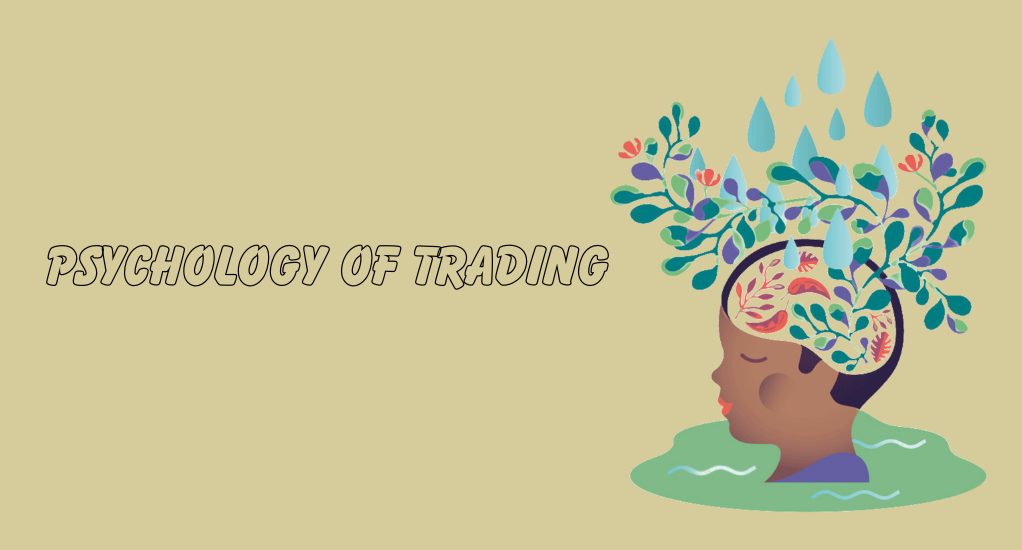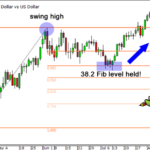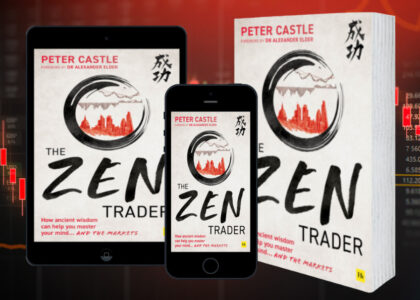Trading is as much a psychological endeavor as it is a financial one. Have you ever felt that pang of fear when making a trade? Or perhaps a sudden rush of excitement, only to second-guess yourself moments later? This emotional rollercoaster is common, but what if we told you there’s a way to turn these feelings to your advantage? Let’s dive deep into the realm of emotional alchemy and trading.
The Psychology of Trading
Recognizing Common Trading Fears
The intricate dance of numbers, graphs, and predictions that define the trading world is filled with its share of highs and lows. However, lurking beneath the veneer of potential profits and strategies is a powerful force that has the capacity to dictate our trading behavior: emotion. At the heart of our decision-making processes are various fears that, when unchecked, can drastically alter the course of our financial journey. Here, we deep dive into some of the most common trading fears and the nuances that surround them.
Fear of Loss
Perhaps one of the oldest fears in the trading book, the fear of loss, is grounded in our innate aversion to losing what we’ve worked hard to earn.
- The Psychology Behind It:
Our brains are wired to react more strongly to potential losses than to equivalent gains, a phenomenon known as loss aversion. For instance, the pain of losing $100 is often perceived as more intense than the joy of gaining the same amount. - The Implications:
Being overly cautious might seem like the safest approach, but in trading, excessive caution can be a double-edged sword. By being too risk-averse, traders might pass up golden opportunities, waiting for a “safer” bet that might never come. - Overcoming the Fear:
One must accept that losses are an intrinsic part of trading. What’s crucial is not to avoid losses, but to manage them in such a way that they don’t wipe out your gains. Proper risk management and setting stop-loss orders can provide a safety net.
Fear of Missing Out (FOMO)
The digital age, with its constant influx of information and real-time updates, has exacerbated this particular fear. FOMO is the anxiety that an exciting or profitable opportunity might be missed if not seized immediately.
- The Psychology Behind It:
Humans are social creatures. We’re influenced by peer behavior, and when we see others making gains or jumping onto a trend, our instinct tells us to follow suit. No one wants to be left behind, after all. - The Implications:
Acting on FOMO can lead traders to enter a market without proper research, possibly at its peak, only to experience sharp declines afterward. It can also lead to overtrading, which increases transaction costs and risks. - Overcoming the Fear:
Traders should cultivate discipline. By having a clear strategy and staying informed, one can avoid making impulsive decisions based on fleeting market trends. Remember, there’s always another opportunity around the corner.
Fear of Being Wrong
This is a more subtle fear, one rooted deeply in our ego and our inherent desire to be seen as competent and intelligent.
- The Psychology Behind It:
Nobody likes to admit mistakes. In the world of trading, where decisions are often public and can be tracked, the fear of being wrong is magnified. There’s a perceived judgment, both from oneself and peers. - The Implications:
Holding onto a losing position in the hopes that it will rebound, or doubling down to justify an initial decision, can lead to substantial losses. The market does not care about egos; it moves based on a myriad of factors. - Overcoming the Fear:
The key lies in detachment. Treat every trade as a business decision, devoid of emotion. Every trader, no matter how experienced, will make wrong calls. The trick is to learn from them and to cut losses early when a trade doesn’t go as planned.
The Power of Emotional Alchemy

Understanding Emotional Transmutation
So, what exactly is emotional alchemy? Think of it as turning lead (negative emotions) into gold (positive actions and outcomes). It’s all about transforming one form of energy into another.
How It Works
Just as a magician might transform objects, traders can convert their fears and anxieties into focus, drive, and, ultimately, success. But how?
Applying Alchemy in Trading
- Embracing Negative Emotions
Instead of running from your fears, confront them. Understand why you’re feeling a certain way. This self-awareness is the first step towards transformation. - Transforming Fear into Confidence
By acknowledging our fears, we can use them as a compass. They often point towards areas we need to improve in, be it more research, a clearer strategy, or better risk management.
Strategies to Overcome Trading Fears
- Mindfulness and Meditation
Being present and centered can greatly diminish the sway of negative emotions. Regular meditation can help traders stay calm and make better decisions. - Knowledge and Continuous Learning
The more you know, the less you fear. Equip yourself with the best tools, knowledge, and strategies. It’s like armoring up before a battle. - Creating a Solid Trading Plan
Have a plan and stick to it. Sounds simple, right? Yet many traders deviate, lured by the siren call of quick profits or driven by fear.
Celebrating Successes, No Matter How Small
Every win, no matter its size, is a step forward. Celebrate it. This boosts confidence and morale, helping to counteract fear in the future.
Conclusion
Emotional alchemy is about more than just trading—it’s a life skill. By understanding and mastering our emotions, we can navigate the tumultuous waters of trading with grace and success. Remember, it’s not about eliminating fear but harnessing it.
FAQs
Trading fears mainly stem from the inherent risks associated with trading and the unpredictable nature of the market.
Engage in regular self-reflection, meditation, and always seek to learn from both successes and failures.
Yes, trading coaches and psychologists specialize in helping traders master their emotions and mindset.
Feeling fear is natural and can be a protective mechanism. It’s how we respond to that fear that makes the difference.
It’s an ongoing journey. Some may find mastery quicker, while for others, it’s a longer path. The key is persistence and self-awareness.
ACDX.io aims to provide balanced and reliable information on cryptocurrency, finance, trading, and stocks. However, we refrain from offering financial recommendations and encourage users to conduct their own research and thorough verification.
Read More










